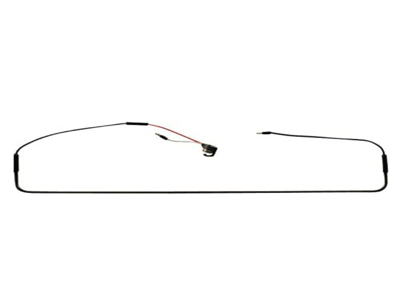

В современной промышленности энергоэффективность и надежность оборудования играют решающую роль в обеспечении конкурентоспособности и устойчивого развития. Одним из ключевых компонентов, способствующих оптимизации производственных процессов, являются конденсаторные вентиляторы. Эти устройства широко применяются в различных отраслях, от металлургии и химической промышленности до пищевой и фармацевтической, обеспечивая эффективное охлаждение, вентиляцию и контроль температуры. В данной статье мы подробно рассмотрим принципы работы, преимущества, области применения и факторы, влияющие на эффективность конденсаторных вентиляторов, а также предложим рекомендации по их выбору и эксплуатации.
Промышленные вентиляторы являются неотъемлемой частью инфраструктуры многих предприятий. Они используются для удаления загрязненного воздуха, подачи свежего, охлаждения оборудования и создания комфортных условий для персонала. С развитием технологий и ужесточением экологических норм, требования к энергоэффективности и надежности вентиляционного оборудования значительно возросли. Конденсаторные вентиляторы, оснащенные конденсаторными двигателями, представляют собой современное решение, которое сочетает в себе высокую производительность и низкое энергопотребление. Их применение позволяет снизить эксплуатационные затраты, уменьшить углеродный след и повысить общую эффективность производственных линий.
Конденсаторные вентиляторы основаны на использовании конденсаторных двигателей, которые характеризуются высокой эффективностью и плавным пуском. В отличие от традиционных асинхронных двигателей, конденсаторные двигатели используют конденсатор для создания сдвига фаз, что позволяет улучшить коэффициент мощности и снизить потери энергии. Принцип работы заключается в следующем: конденсатор подключается к обмотке двигателя, создавая дополнительную фазу тока, которая обеспечивает более стабильное вращение ротора. Это приводит к уменьшению пусковых токов, что особенно важно для промышленных применений, где частые включения и выключения могут вызывать перегрузки в сети.
Конструктивно, конденсаторные вентиляторы состоят из двигателя, лопастей (импеллера), корпуса и системы управления. Лопасти designed to maximize airflow while minimizing noise and vibration. The motor is typically brushless, which reduces maintenance needs and increases lifespan. The use of advanced materials, such as aluminum or composite alloys, contributes to lightweight and durable design, suitable for harsh industrial environments.
Конденсаторные вентиляторы offer numerous advantages over traditional fan systems. Key benefits include:
These advantages make condenser fans ideal for continuous operation in industries such as manufacturing, data centers, and HVAC systems.
Конденсаторные вентиляторы find applications across a wide range of industrial sectors. In the metalworking industry, they are used for cooling furnaces and machinery, preventing overheating and ensuring consistent product quality. In the chemical sector, these fans facilitate ventilation in hazardous areas, removing fumes and maintaining safe working conditions. The food and beverage industry relies on them for climate control in processing areas, where precise temperature and humidity levels are critical. Additionally, in power plants and data centers, condenser fans are essential for heat dissipation from transformers and servers, preventing equipment failure and ensuring uninterrupted operation.
Case studies show that companies implementing condenser fans have reported up to 25% reduction in energy costs and improved operational efficiency. For example, a large automotive plant integrated these fans into their ventilation system, resulting in better air quality and lower maintenance expenses.
Эффективность конденсаторных вентиляторов зависит от нескольких factors, including design, installation, and operational conditions. Key factors include:
To maximize efficiency, it is important to select fans that match the specific requirements of the application and to follow manufacturer guidelines for installation and upkeep.
Compared to axial and centrifugal fans, condenser fans offer distinct advantages. Axial fans are simple and cost-effective but less efficient at high pressures, while centrifugal fans provide better pressure capabilities but consume more energy. Condenser fans strike a balance, offering good efficiency across a range of conditions. For instance, in applications requiring moderate pressure and high airflow, condenser fans outperform both types due to their superior motor technology. However, they may have higher initial costs, which are offset by long-term savings.
Technological advancements, such as the integration of IoT sensors for predictive maintenance, are further enhancing the appeal of condenser fans in smart industrial setups.
При выборе конденсаторных вентиляторов consider factors like airflow requirements, static pressure, energy efficiency ratings, and environmental conditions. Opt for models with certifications such as ISO or CE to ensure quality and safety. During installation, ensure proper alignment and ventilation to prevent overheating. Regular maintenance should include inspecting bearings, cleaning filters, and checking electrical connections. Implementing a monitoring system can help detect issues early, reducing the risk of failures.
For optimal performance, collaborate with reputable suppliers and consider lifecycle cost analysis rather than focusing solely on purchase price.
The future of condenser fans lies in further improvements in energy efficiency, noise reduction, and smart capabilities. Emerging trends include the use of magnetic bearings for frictionless operation, advanced materials like graphene for lighter components, and AI-driven control systems that adapt to changing conditions in real-time. As industries move towards Industry 4.0, condenser fans will become integral to connected ecosystems, contributing to overall operational intelligence and sustainability.
Research is ongoing to develop fans with even higher efficiency ratings, potentially exceeding current standards and setting new benchmarks for the industry.
Конденсаторные вентиляторы представляют собой эффективное и надежное решение для промышленных applications, offering significant benefits in terms of energy savings, reliability, and environmental impact. By understanding their principles, advantages, and best practices for use, companies can leverage these fans to enhance productivity and reduce costs. As technology advances, we can expect even greater innovations that will further solidify their role in modern industry.
Investing in high-quality condenser fans is not just a operational decision but a strategic move towards sustainable and efficient manufacturing.